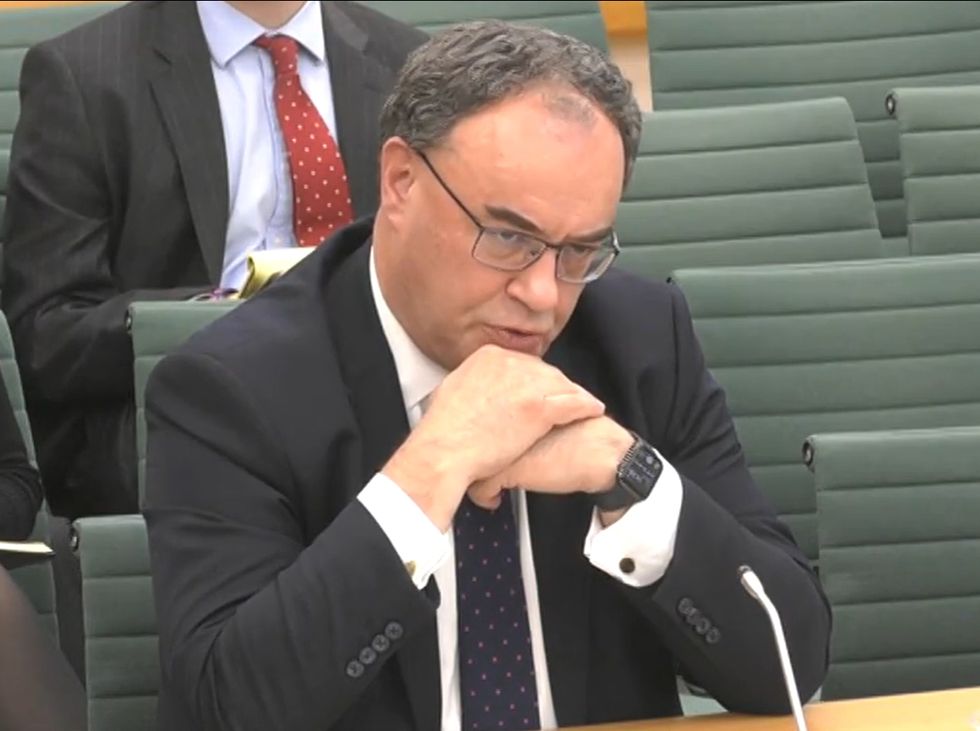Interest rates to rise AGAIN: Brace for another sharp increase in just weeks - housing market to be badly impacted

Andrew Bailey leads to Monetary Policy Committee
House of Commons

Interest rates are set to increase again next month, with warnings the decline in the housing market “may be just the beginning” of a larger fall in consumer spending.
Financial markets expect the Bank of England's Monetary Policy Committee, led by Governor Andrew Bailey, to raise interest rates by 0.5 per cent in February due to high underlying inflation, strong wage growth and unexpected resilience in the economy.
It was widely anticipated that the UK would fall into recession in the final three months of last year, but the economy grew unexpectedly in November with gross domestic product increasing by 0.1 per cent compared to October.
In the three months leading up to November, 27,000 jobs were added compared to the previous three months and nominal wage growth soared to a near-record high.
The housing market is also expected to be affected badly
Anthony Devlin
Inflation reduced to 10.5 per cent in December, from 10.7 per cent in November.
However, growth in the prices charged by service companies, which is considered a better measurement of domestic inflationary pressure, increased.
Interest rates were at a historic low of 0.1 per cent in November 2021 but have risen since then as the Bank of England attempt to curb high inflation.
Ruth Gregory, economist at Capital Economics said: “The economy appears to have been remarkably resilient so far to the dual drags of high inflation and higher interest rates.”
She attributed the resilience in part to the recent fall in wholesale gas prices as well as government financial support for households and businesses with their energy bills.
The FTSE 100 index has been close to record highs in January but James Smith, economist at ING, said “it’s too early to say conclusively that the [UK] economy is proving more resilient”.
Brits responding to the cost of living crisis has caused retail sales to fall by 1 per cent in December compared to the previous month.
And the property market showed further signs of a sharp downturn.
The Bank of England is set to increase rates by 0.5 per cent
John Walton
Elizabeth Martins, economist at HSBC, told the Financial Times that while strong private sector pay growth and high services inflation provided “hawkish data”, and made the case for a 0.5 percentage point interest rate rise, the disappointing retail sales “are a reminder that there is a dovish case [on monetary policy] to be made too”.
She added the decline in the housing market data “may be just the beginning” of a larger fall in consumer spending.
Interest rates affect the economy with a considerable time lag, which is expected to peak at 4.5 per cent this summer as a possible recession in 2023 looms.
Susannah Streeter, analyst at Hargreaves Lansdown said high interest rates “will pile more pressure on borrowers, will further weaken a rapidly slowing housing market” and erode already low consumer confidence.
It means that “a recession may only have been delayed, and not avoided”, she added.